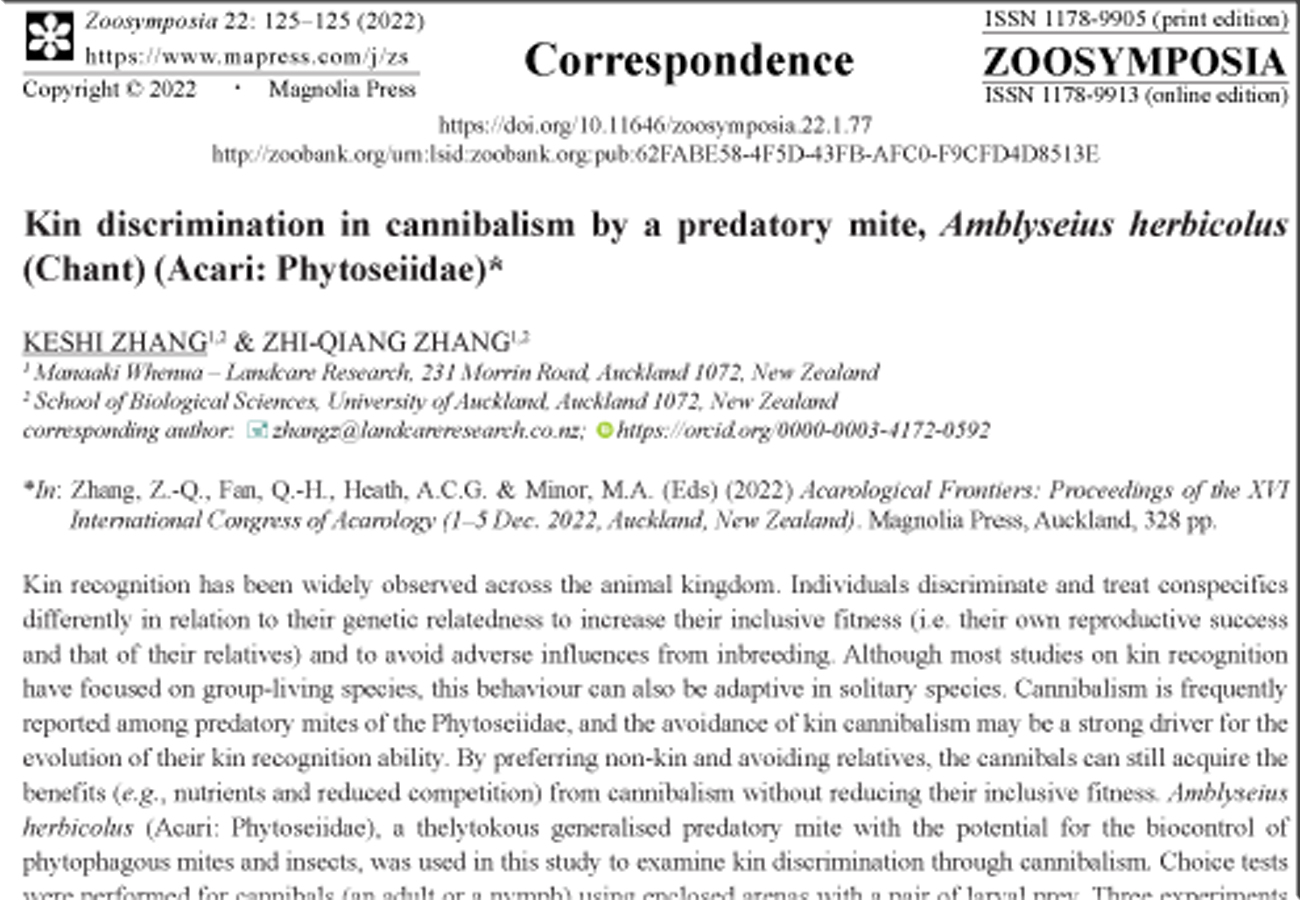Abstract
Kin recognition has been widely observed across the animal kingdom. Individuals discriminate and treat conspecifics differently in relation to their genetic relatedness to increase their inclusive fitness (i.e. their own reproductive success and that of their relatives) and to avoid adverse influences from inbreeding. Although most studies on kin recognition have focused on group-living species, this behaviour can also be adaptive in solitary species.
References
Zhang, K. & Zhang, Z.-Q. (2022a) A thelytokous predatory mite is more cannibalistic towards distant kin. Current Zoology, zoac074. https://doi.org/10.1093/cz/zoac074
Zhang, K. & Zhang, Z.-Q. (2022b) Kin recognition by cannibals is modulated by hunger level in a generalist predatory mite Amblyseius herbicolus (Chant) (Acari: Phytoseiidae). Journal of Applied Entomology, 146 (5), 579–585. https://doi.org/10.1111/jen.12973
Zhang, K. & Zhang, Z.-Q. (2022c) Social context during ontogeny affects cannibalism and kin recognition of the predatory mite Amblyseius herbicolus (Chant) at different life stages. Experimental and Applied Acarology, in publication.


